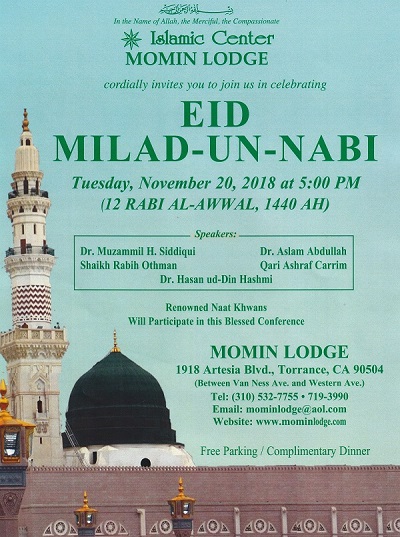“O! You who believe, fasting has been prescribe for you as it was prescribed for those before you, so that you may be God-conscious, for a fixed number of days, but whoever among you is ill or on a journey (he should fast) a (like) number of days. And for those who can (scarcely) afford it, there is redemption, the feeling of a needy person. It is even better for anyone who can volunteer some more wealth (than he is bound to give). Although it is better yet for you to fast if you understand. Ramadan is the month in which Qur’an was revealed as a guidance for mankind, and clear proofs of the guidance, and as a standard. Let any of you who is at home during the month, fast in it.” (Qur’an 2:183-185)
Fasting during the month of Ramadan is one of the five pillars of Islam. It is a form of worship of Allah that has been prescribed and made an obligatory duty on all mature believers who are both healthy and present at home, while those who have an excuse, such as sick and travelers, are exempted from it. (Qur’an 2:185).
Everyday, during the entire month of Ramadan, the believers must abstain from eating, drinking and sexual intercourse from dawn until sunset, the intention being to please Allah. This intention is a must. Without it the fasting will be merely a condition of physical discomfort, thirst and hunger, not a form of worship and spiritual discipline.
The practice of fasting is a very effective source of self-control and is the key to a successful social life. This importance made it a universal institution and a principle method to overcome human desires and passions. Like Islam, the other revealed religions of the world have also instituted fasting in some for or other. Hindus, Jainies, Buddhists and Zoroastrians all practice it (Encyclopedia Britannica, “Fasting”). Judaism believes in this institution (11 Sam 12:16, 18; Lev 16:29), and likewise, Christianity has a strong tradition of fasting (Matthew 6:16, 17; Luke 5:33-35; Acts 13:2, 3: 14:23:11 Corinthians 6:5, 11:27). The Holy book of Islam the Qur’an, has described the essentiality of fasting for Muslims, and its universality in the following words:
“O! You who believe! Fasting has been prescribed for you, as it was prescribed for those before you, so that you may be God-conscious.” (Qur’an 2:183)
During, his stay at Mecca, the Holy Prophet Muhammad (PBUH) used to fast every year on the tenth of Muharram, the first month of the lunar calendar (Al-Bukhari). After migrating to Medina, he preserved fasting in the same manner and ordered his followers t observe it. But, during the second year of migration in Sha’ban (the eight lunar month), the injunction concerning fasting in the month of Ramadan (the ninth lunar month) was revealed. (Qur’an 2:185).
Through this commandment, fasting in the month of Ramadan was made obligatory while fasting during Muharram was abrogated and made optional.
The strict definition of fasting is: Abstinence from eating, drinking and sexual intercourse from the commencement of dawn until sunset with the intention of pleasing Allah.
Fasting is a form of spiritual training; its ultimate purpose is God-consciousness (taqwa). It brings man closer to Allah and fills his heart with His love. The fasting person, throughout the day, abstains from food, drink and other pleasures of life just for the love of his creator, not to please other people. Even in the inner sanctum of his house, where no one can watch him, check on him or interfere with him, he can easily avail there those attractions which are lawful to him at other times, yet he refrains from them, because he knows that whether people see him or not, Allah is watching him. He is, therefore, before His sight at all times and in all places, he cannot hide from Him. Whenever, a fasting person faces low desires and temptations, he can overcome them by the strong sense of temptations, he can overcome them by the strong sense of Divine presence. This spiritual exercise is not just for a few hours; it is for a full day and ten not for one or two days but for a whole month. This spiritual discipline during Ramadan can develop in the hearts and minds of the believers a strong sense of Allah’s nearness, which leads to His love and obedience. Thus, the divine presence becomes a real living force and not just a matter of faith. Through spiritual awareness, believers can enjoy the companionship of Allah and His special blessings. The Holy Prophet (PBUH) said:
“Every good deed of the child of Adam will be multiplied to ten times like it up to seven hundred times. The Almighty Allah said: “Except fasting, because that is for me and I am its reward (according to other report. “I will give its reward”). He gives up his desire and food for Me.” There are two rejoicing for a fasting person, one rejoicing is at the time of his breaking fast, and other is at the time of his meeting his Lord.”
Fasting strengthens the sense of morality; the fasting person, just for obedience of his Lord, abstains, from the commencement of dawn till sunset, from his food, drink and other pleasures of life which are otherwise lawful for him. The day to day practice of refraining for a certain period of time, even from lawful things, develops in him a great quality of self-control, which enables him to overcome his passions and desires, and be their master instead of being their slave and ruled by them. This moral lesson teaches him that unlawful acts must not be done and every evil thing or deed must be avoided. As he suffered the hardship of thirst and hunger, and refrained during the whole month of Ramadan from food, drink and other pleasures, he should be ready to control himself in every field of life from indulging in that which is not permitted. The Holy Prophet (PBUH) said:
“Whoever did not give up lying and practicing falsehood, Allah is not in need of his giving up his food and drink.”
Like other rituals of Islam, fasting also has a very effective social value. During the month of Ramadan, Muslims all over the world whether male or female, rich or poor, old or young, fast together. All fasting people at daytime are hungry and thirsty and when the sun sets they all break fast and start eating and drinking. This teaches them the lesson of unity and urges them to have a sense of common happiness and to share the sufferings of other people. Nobody can know exactly the misery of hunger and thirst just by listening to the afflicted ones. Fasting provides people a practical experience and shows them what it feels like to be hungry and thirsty. This feeling awakens sympathy towards the poor and encourages to help them, and brings the rich and poor closer together. The Holy Prophet (PBUH) urged the Muslims to show this closeness in their practice by helping others.



